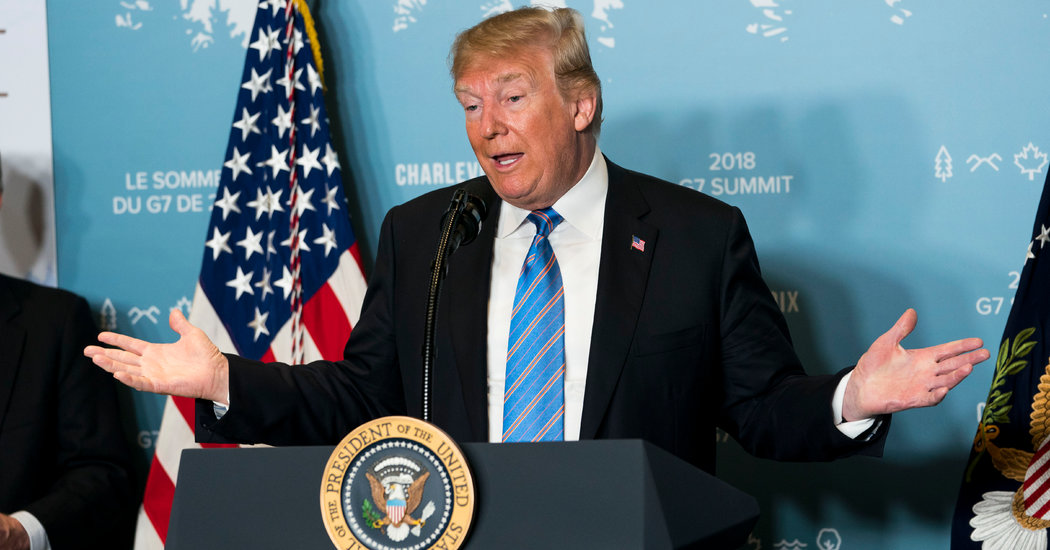Will Renewed Trump Tariffs Cripple Europe's Trade?

Table of Contents
The History of Trump-Era Tariffs and their Impact on Europe
The Trump administration's imposition of tariffs, notably on steel and aluminum, significantly impacted transatlantic trade relations. These tariffs, implemented under the guise of national security concerns, triggered a trade war with the EU, leading to retaliatory measures. The impact was far-reaching, affecting various European sectors.
The automotive industry, a major player in the EU economy, felt the brunt of these tariffs. Increased costs and reduced market access led to job losses and hampered production. Similarly, the agricultural sector faced challenges, with increased tariffs on products like cheese and wine impacting exports to the US market.
- Key consequences of Trump-era tariffs on Europe:
- Significant job losses in the automotive, agricultural, and manufacturing sectors.
- Increased prices for consumers across various product categories.
- Retaliatory tariffs imposed by the EU, impacting US exports to Europe.
- Disruption of established supply chains, leading to increased production costs and delays.
- Damage to transatlantic trade relationships and the broader global trading system.
Potential for Renewed Tariffs Under a Future Trump Presidency
The possibility of a return to protectionist trade policies under a potential second Trump term is a significant concern for Europe. Trump's past rhetoric and actions strongly suggest a predisposition towards protectionism, fueled by his "America First" agenda. Several factors could influence this decision, including domestic political pressures, the state of the US economy, and the global geopolitical landscape.
- Potential scenarios for renewed tariffs:
- Full reinstatement of previous tariffs: A complete return to the previous tariff regime would severely disrupt trade and exacerbate existing tensions.
- Targeted tariffs on specific sectors: This approach might focus on industries deemed strategically important or those perceived to be unfairly competing with US businesses.
- Negotiated trade deals mitigating tariff impacts: While less likely given Trump's past stance, negotiated deals could offer a more moderate approach, reducing but not eliminating tariff barriers.
Europe's Response Strategies to Mitigate Tariff Impacts
Faced with the potential threat of renewed Trump tariffs, the EU needs proactive strategies to mitigate the economic fallout. These strategies must address both the immediate impact of tariffs and the long-term need for greater economic resilience.
- Potential EU response strategies:
- Negotiating bilateral trade agreements with the US: While challenging given political differences, strong bilateral agreements could offer a framework for reduced tariffs and increased trade.
- Diversifying trade partners to reduce reliance on the US market: Expanding trade relationships with countries in Asia, Africa, and Latin America can lessen the impact of US tariffs.
- Investing in domestic industries to enhance competitiveness: Strengthening European industries through innovation and investment can make them less vulnerable to external shocks.
- Strengthening existing trade alliances: Closer collaboration with other trading blocs like the CPTPP can provide a counterweight to US protectionism.
The Role of the WTO in Resolving Trade Disputes
The World Trade Organization (WTO) plays a crucial role in resolving trade disputes, offering a framework for addressing unfair trade practices. While the WTO's dispute settlement mechanism can help limit the impact of unilateral tariff actions, its effectiveness is limited by the willingness of member states to comply with rulings and the inherent complexities of international trade law. The WTO can provide a forum for negotiation and dispute resolution, but it cannot force countries to remove tariffs if they are unwilling to do so. Its limitations highlight the need for proactive strategies from the EU to mitigate the risks posed by protectionist measures.
Conclusion
The potential for renewed Trump tariffs poses a significant threat to European trade and economic stability. The historical impact of previous tariffs, coupled with the potential for their return, necessitates a proactive and multi-faceted response from the EU. Diversifying trade partnerships, strengthening domestic industries, and exploring bilateral trade agreements are crucial steps in building resilience against future protectionist measures. Understanding the implications of these Trump tariffs is crucial for businesses and policymakers alike. Stay informed about developments in US trade policy and the EU's response to potential renewed Trump tariffs. Follow our updates for the latest analysis on this evolving situation. The future of transatlantic trade hinges on navigating these challenges effectively, and understanding the potential impact of these trade tariffs and US tariffs is critical for all stakeholders.

Featured Posts
-
 Post Roe America How Over The Counter Birth Control Impacts Womens Health
May 13, 2025
Post Roe America How Over The Counter Birth Control Impacts Womens Health
May 13, 2025 -
 V Javni Obravnavi Predlog Novele Zakona O Romski Skupnosti
May 13, 2025
V Javni Obravnavi Predlog Novele Zakona O Romski Skupnosti
May 13, 2025 -
 Celebrity Couple Cassie And Alex Fine Debut At Mob Land Premiere
May 13, 2025
Celebrity Couple Cassie And Alex Fine Debut At Mob Land Premiere
May 13, 2025 -
 The R2 Crore Failure How One Salman Khan Film Ended Careers
May 13, 2025
The R2 Crore Failure How One Salman Khan Film Ended Careers
May 13, 2025 -
 Prediksi Atalanta Vs Venezia Serie A Susunan Pemain Analisis Statistik Dan Head To Head
May 13, 2025
Prediksi Atalanta Vs Venezia Serie A Susunan Pemain Analisis Statistik Dan Head To Head
May 13, 2025
